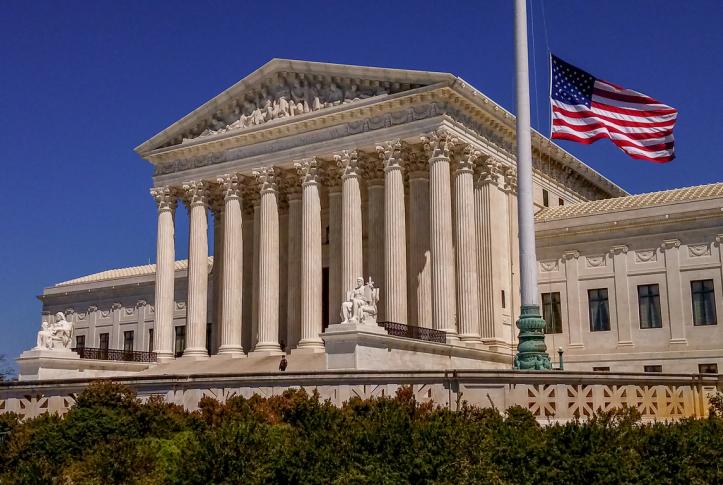Brett Kavanaugh, President Trump’s Supreme Court nominee, has served on the Court of Appeals for the District of Columbia Circuit for more than a decade. In this capacity, he has written opinions in a number of cases involving controversial health care issues. In only one did Judge Kavanaugh write for the majority; the others were dissenting opinions.
This post analyzes Judge Kavanaugh’s opinions in the five major health law cases in which he has been involved. It then discusses what we can learn from these opinions as to how Judge Kavanaugh might decide health care disputes as a Supreme Court Justice.
Affordable Care Act Cases
In two Affordable Care Act (ACA) cases, Kavanaugh dissented from the majority opinion that had rejected a challenge to the ACA. In both, however, he objected only to the reasoning of the court; he agreed with the majority that the complaint against the ACA should have been rejected.
Seven-Sky v. Holder was one of a spate of lawsuits challenging the constitutionality of the ACA’s individual responsibility requirement filed soon after its adoption. The majority of the Seven-Sky judicial panel held that the requirement was a constitutional exercise of Congress’s power to regulate interstate commerce (a position rejected by the Supreme Court in its NFIB decision, which upheld the constitutionality of the mandate). Kavanaugh would have instead treated the mandate as a tax (a position later accepted by the Supreme Court), and dismissed the complaint under the Tax Anti-Injunction Act.
In another case, Sissel v. U.S. Department of Health and Human Services (HHS), the plaintiff asserted that the ACA was unconstitutional because it was a revenue bill that originated in the Senate and not in the House, as required by the Constitution. Kavanaugh agreed with the majority that the ACA did not violate the Constitution’s origination clause, but would have analyzed the issue differently.
In neither case did Kavanaugh evidence strong opposition to the ACA. After a long discussion of the Tax Anti-Injunction Act in Seven-Sky, Kavanaugh concluded his opinion by musing about the possible invalidity of the mandate under Congress’s commerce power. On the one hand, he entertained arguments that the mandate encroached on state authority and individual rights, but on the other, he suggested that it was a novel approach to providing safety-net services through the private sector. Seeing both sides of the argument, he concluded that the court should avoid a constitutional ruling until the case was properly before it.
Abortion, Contraception, and Medicare Entitlement Cases
In Garza v. Hargan, Kavanaugh dissented from a decision by the majority of active D.C. Circuit judges, which allowed the district court to permit a minor immigrant in U.S. custody to obtain an abortion. Kavanaugh, who had earlier ordered a stay in the lower court’s order permitting an abortion as part of a three-judge panel, provocatively criticized the en banc majority decision as “ultimately based on a constitutional principle as novel as it is wrong: a new right for unlawful immigrant minors in U.S. Government detention to obtain immediate abortion on demand” in a dissent from the court’s decision to reverse his order.
In fact, however, Kavanaugh’s dissent, acknowledging Supreme Court authority following Roe v. Wade, argued only that delaying the abortion to allow the government more time to find a sponsor for the minor would not have posed an “undue burden” to her abortion rights. Judge Millet, concurring in the en banc decision, argued to the contrary that further delay would impose a serious burden. Kavanaugh did not join the dissent of another judge who would have gone further and found that a minor undocumented immigrant has no constitutional right to have an abortion.
In a 2017 speech, Judge Kavanaugh praised former Chief Justice Rehnquist for his dissent in Roe v. Wade and his resistance to recognizing constitutional rights not explicitly granted by the Constitution. It is possible that if appointed to the Supreme Court, Judge Kavanaugh would feel less bound by precedent and vote to overturn Roe. It is more likely, however, that he would instead attempt to narrow the range of cases where an impediment to woman’s right to an abortion is considered not to be an “undue burden,” as he did in Garza, effectively achieving the same result.
In Priests for Life v. HHS, Judge Kavanaugh, in another dissent, argued that the accommodation offered by the Obama administration for religious employers who object to covering contraceptives for their employers was invalid. Unlike other dissenters, however, he acknowledged that the Supreme Court had held that the government had a compelling interest in ensuring access to contraceptives. He argued only that the government could have fulfilled that interest through an approach less restrictive of the rights of religious organizations.
Finally, in Hall v. Sebelius, Kavanaugh wrote for the majority of a three-judge panel holding that an individual who is 65 years or older and who receives Social Security cannot decline an entitlement to Medicare Part A coverage. Former U.S. House of Representatives majority leader Dick Armey and two other individuals had sought a declaration that they could refuse the Medicare entitlement because individuals who are entitled to Medicare cannot purchase comprehensive private health insurance. Kavanaugh considered the entitlement a result dictated by the statute, and rejected a dissent from Judge Karen Henderson, who argued that the obligation was based on HHS guidance that incorrectly interpreted that law.
Judge Kavanaugh’s Approach to Judging
In none of these cases did Kavanaugh stake out a strong ideological position, for example, opposing abortion or the ACA. Indeed, he declined to join other dissenting judges who did so more forthrightly. In several of the cases he made a point of following existing precedent and in none would he have radically changed the law.
This is not to say, however, that as a Supreme Court justice Kavanaugh might not effectuate major changes in law affecting controversial health policy issues. His opinions clearly distinguish between the role of the Supreme Court, which establishes precedent, and of the appellate court, which must follow its lead.
Moreover, in other contexts Judge Kavanaugh has made it clear that he supports a more expansive role for the courts and a more restricted role for administrative agencies in interpreting statutes. Justice Kavanaugh may be quite open to challenges to Obama-era — or Trump-era —administrative regulations for implementing the ACA. Kavanaugh also has been quite willing in other contexts to challenge major federal programs on constitutional grounds.
On the other hand, he might be open to dramatically expanding to power of the executive. In a footnote to Kavanaugh’s musings on the possible constitutionality of the individual mandate in Seven-Sky he asserts: “Under the Constitution, the President may decline to enforce a statute that regulates private individuals when the President deems the statute unconstitutional, even if a court has held or would hold the statute constitutional.” This is a striking statement, which could have very serious consequences if broadly applied. It is consistent with statements Kavanaugh has made elsewhere supporting a strong presidency.
Finally, a number of Judge Kavanaugh’s decisions turn on procedural, jurisdictional, or remedial issues. It is often easier to deny rights to consumers, workers, minorities, or people with lower incomes by denying them access to the courts rather than by ruling against them on the substance of their legal claims. The Supreme Court has done so many times in recent years. Justice Kavanaugh may continue this trend.




